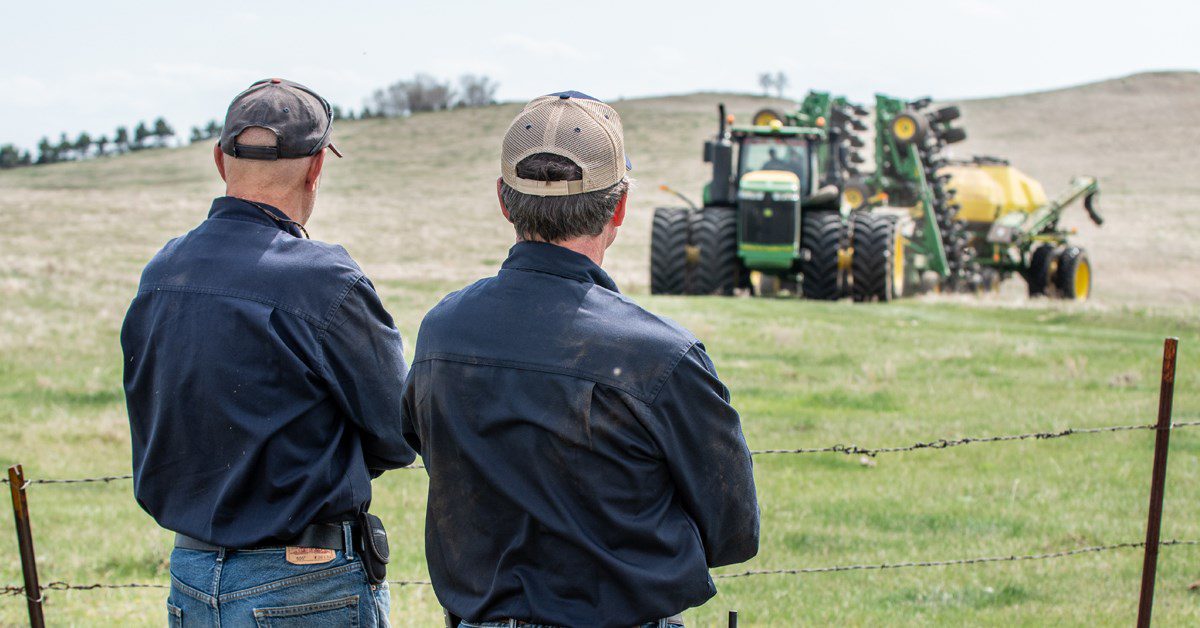At its core, the concept of community is about give-and-take. Everyone has a different idea of what that entails. For younger city-living professionals, communities can mean immediate friends and family. Relationships, nightlife, and just plain old “figuring things out” can leave little time for anything else.
Farmers sit on the opposite end of that spectrum. They’ve usually spent decades tending to their land and the smaller communities that rely on it, forming tight connections that can span generations. But in the event of a debilitating injury or illness, small-town support rarely makes up for everything. Regular employees simply clock out, but crops don’t follow a corporate sick leave structure — sustained absence from working could lead to the loss of an entire harvest’s income. Thankfully, a group has made a name for itself as an extended community for these dire cases.
Farm Rescue is a nonprofit foundation dedicated to providing life-changing assistance to farmers around much of America who suffered a catastrophic blow to their livelihoods.
The language on who is eligible for aid is intentionally wide-ranging — a natural disaster that leveled one’s family farm would be just as applicable as a potential recipient dealing with a serious physical injury or long-term illness.
Since its beginning in 2005, the foundation has helped almost 1,000 farms with free equipment and workers in the northern Great Plains region. In 2021 alone, Farm Rescue helped struggling farmers with hardships, including wildfires, drought, back injuries, cancer, and even brain surgery.
The assistance from Farm Rescue varies extensively based on each changing situation and the immediate needs of a given farmer. Those who endured extreme weather might need help clearing debris and repairing field damage. Conversely, a farmer dealing with a debilitating illness might need a more involved approach. Support is limited to 1,000 affected acres per family, with Farm Rescue providing the labor and necessary equipment. Monetary assistance is not given. However, the financial benefits come from avoiding a poor or nonexistent harvest, an occurrence that can prove disastrous for many small farms.
The organization operates in seven states with extensive agricultural production, including North and South Dakota, Iowa, Minnesota, Montana, Kansas, and Nebraska. Recently, it announced that it would be expanding assistance to farmers in Illinois starting in 2023.
The expansion will likely be made possible in part by a donation from Nutrien Ag Solutions, a Canadian fertilizer company. “Nutrien Ag Solutions is proud to support the critical work Farm Rescue is doing to care for the agriculture community when it is needed most,” said David Elser, senior vice president of North America for Nutrien Ag Solutions.
The nonprofit also made news earlier this year when it announced a fundraising-based collaboration with Anheuser-Busch and John Deere. The partnership came as a two-part effort, the first of which was the Cornfield Cornhole celebration just before summer. The event coincided with a six-week promotion that began May 16 involving the sale of limited-edition Busch Light cans with Deere branding. Interested patrons could pick out the special packaging on all 24-packs and 30-packs. For every pack sold, Busch pledged to donate $1 for a maximum of $100,000 to the Farm Rescue organization, a donation that would be matched in full by John Deere.
This assistance comes on top of the $500,000 that Busch has already donated. The beer company has also given $1,140,000 to other farmer assistance organizations since 2020. John Deere has had a similar relationship with Farm Rescue, once hosting a “The Farm Must Go On” benefit concert for the foundation in late 2020.





 Copyright
2024
Root and Vine
Copyright
2024
Root and Vine